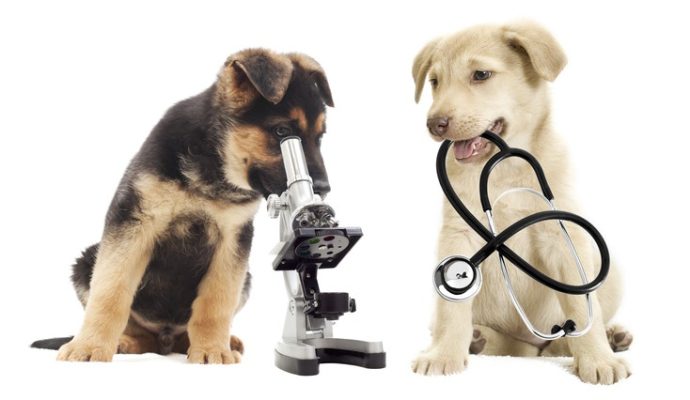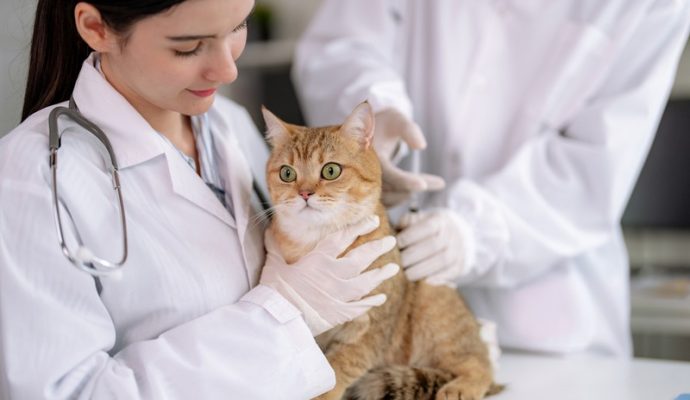Visiting the veterinarian is a crucial part of maintaining your pet’s health. These regular check-ups can reveal a range of health issues, many of which are common in household pets. Early detection is key to managing these conditions and ensuring the well-being of our furry friends. Let’s explore some of the frequent ailments identified during these important visits.
1. Dental Diseases
Oral health complications are prevalent among pets. Tartar build-up, gum disease, and tooth decay can lead to serious health implications if left untreated. Bad breath is often the first sign of dental issues. Regular dental examinations are an integral part of a pet’s overall health checkup. A professional veterinary dentist can provide comprehensive care, including cleanings, extractions, and even advanced dental procedures.
2. Parasitic Infections
Parasites such as fleas, ticks, and worms are notorious for infesting pets and causing a range of health issues. Not only are these pests a nuisance, but they can also transmit diseases and lead to conditions such as anemia and intestinal problems. Vets will often perform fecal exams and blood tests to detect these unwanted guests.
Common parasitic afflictions include:
-
Heartworms
-
Tapeworms
-
Roundworms
-
Flea and tick-borne diseases
3. Obesity and Nutritional Disorders
A surprising number of pets are overweight or obese, which can lead to a host of health issues, such as diabetes, joint pain, and heart disease. Veterinarians often assess a pet’s weight and dietary habits to recommend nutrition plans or weight management strategies.
4. Allergies
Allergies in pets can manifest in skin problems, digestive issues, or respiratory distress. Vets detect these allergic reactions during exams, often through visible signs on the skin or by a pet’s behavior. Allergies can be managed with dietary changes, medications, or environmental adjustments.
5. Skin Conditions
Skin issues are a frequent cause of vet visits. Causes can range from parasites to allergies, and the symptoms often include itching, redness, and hair loss. Skin scrapings and other diagnostic tests help vets to identify the underlying problems.
6. Infectious Diseases
Canine parvovirus, feline leukemia, and rabies are among the infectious diseases that pets can contract. Regular visits to facilities such as a pet vaccinations clinic are important preventative measures. Vaccinations are critical to protecting pets from many of these life-threatening diseases.
7. Ear Infections
Ear infections in dogs are quite ordinary problems that many dogs experience. Dogs with ears that hang down, often called floppy ears, are more likely to get these infections. The inside of their ears can stay wet and warm, which is a perfect place for infections to start.
Early signs that your dog might have an infection include scratching their ears more than usual, shaking their head a lot, or if there is a bad smell coming from their ears.
Symptoms of Ear Infections in Dogs
-
Scratching: Dogs with ear infections often feel itchy inside their ears. They try to stop the itch by scratching their ears with their paws.
-
Head Shaking: You might notice your dog shaking their head a lot. They do this because the infection makes their ears feel uncomfortable.
-
Odor: A bad smell coming from your dog’s ears can be a sign of an infection. The smell can be quite strong and unpleasant.
When you see these signs in your dog, it’s a good idea to visit a vet. A vet is an animal doctor. Vets know a lot about dogs and other animals, so they can look inside your dog’s ears to see if there is an infection.
They can tell you what medicine your dog needs to get better. Sometimes, they may also tell you about ways you can care for your dog at home to help prevent ear infections in the future.
8. Urinary Tract Infections (UTIs)
UTIs are uncomfortable and potentially dangerous conditions that are often spotted during routine vet visits. Symptoms include frequent urination, blood in the urine, and urinating in unusual places. Early treatment is crucial to prevent more serious kidney issues.
9. Endocrine Disorders
Endocrine disorders such as diabetes and thyroid issues are not uncommon in pets. Symptoms can be subtle but may include changes in appetite, weight, and energy levels. Blood tests are usually conducted to diagnose these conditions.
10. Cancer
Although it’s a diagnosis pet owners fear, cancer is increasingly common, particularly in older pets. Vets may detect lumps, swelling, or other signs during physical exams. Early detection and treatment are vital and can include surgery, chemotherapy, and radiation.
Preventative Care and Early Detection
Maintaining regular veterinary visits is crucial for the early detection of diseases. Vets can also guide pet owners on preventative care, which might include regular screenings, a balanced diet, and appropriate exercise. Veterinary facilities like Brookhaven Animal Hospital ensure that pets receive comprehensive care to maintain their health and vitality.
Common Disease Symptoms to Watch Out For
Being aware of the signs and symptoms of common diseases can help pet owners seek timely veterinary assistance.
Watch for these symptoms:
-
Abnormal lumps or bumps
-
Changes in eating or drinking habits
-
Unexplained weight loss or gain
-
Foul breath or drooling
-
Difficulty moving or lameness
-
Excessive scratching or hair loss
-
Unusual stool or urination patterns
Regular vet check-ups, staying up to date with vaccinations, maintaining oral hygiene, and managing nutrition and weight can all contribute to a healthier lifestyle for pets. Being vigilant and attentive to small changes can lead to early detection and treatment, which is often less invasive and more effective.
To End
To ensure the continued health and happiness of our beloved pets, it’s essential to be proactive in their health care. Understanding the common diseases detected during pet vet visits empowers owners to provide the best possible care for their animal companions. With ongoing veterinary support and an alert eye to changes in behavior or health, we can help to extend and enrich the lives of our pets.




